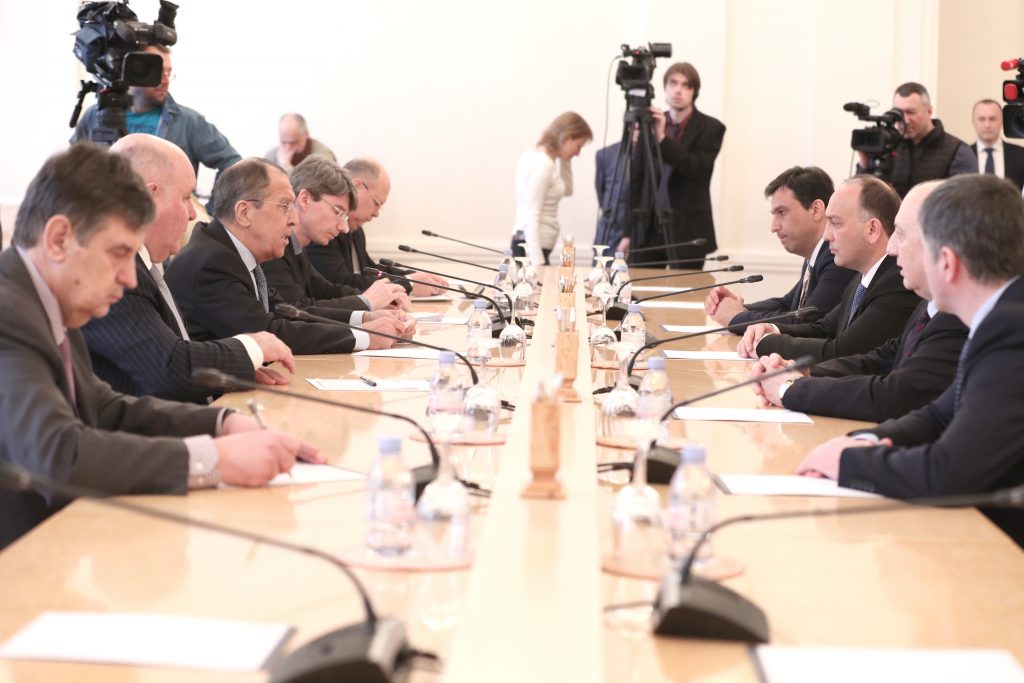On April 1, a day before the Geneva International Discussions, Russian Foreign Minister Sergey Lavrov met Daur Kove, the self-styled “foreign minister” of Abkhazia.
In his opening remarks, Lavrov said Moscow and Sokhumi show “positive dynamism of bilateral relations,” and that “high-level political contacts are regular” including the previous meetings at the level of President Vladimir Putin.
Lavrov stressed that “joint actions for social and economic development of Abkhazia” are among the priority topics to be discussed with his counterpart. He stressed, that the Russian Federation remains Sokhumi’s key foreign trade partner, and placed particular importance on holding the “business fora” involving businesses from both sides, while highlighting the value of closer economic “contacts with the regions of Russia” that Sokhumi is developing.
The Russian Foreign Minister has stressed that “more than hundred documents at the highest level and at the level of the governments” serve to structure the cooperation in “socio-economic, humanitarian, military, military-technical [fields] and, of course, in foreign policy.”
Lavrov also hailed “effective mechanism of foreign policy coordination” based on the 2015 Memorandum on implementation of coordinated foreign policy. In this context, he has noted preparations for the upcoming round of the Geneva International Discussions, scheduled for April 2-3. Lavrov stressed that Russia “will continue to assist Abkhazia in strengthening its international position.”
On his part, Daur Kove thanked Lavrov for his “invaluable personal contribution” in developing bilateral ties and noted the growing “dynamism in relations” between Sokhumi and Moscow.
Kove also said that discussions on Abkhazia’s economic development, cultural and humanitarian issues as well as ensuring its security by the Russian Federation remain key issues on their “bilateral agenda.”
Since 2014, Russia has signed the Treaty on Strategic Partnership and Cooperation with Sokhumi, foreseeing close integration in military, security, and socio-economic fields. Further treaties and agreements, which Georgia considers illegal, have led to gradual integration of Abkhazia into Russia’s military-security infrastructure, as well as the economic and social systems of the southern Russian regions.
This post is also available in: ქართული (Georgian) Русский (Russian)

